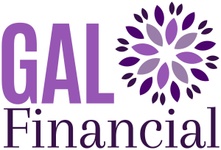Simplicity Digital Advisor
Financial Lessons from History’s Greatest Disasters
History is a great teacher, offering insights and financial lessons on a wide range of subjects. By examining some of the most catastrophic financial disasters in history, we can learn valuable lessons to apply in our lives.
Labor Day Legacy: Teaching Children About Work, Money, and Retirement
Labor Day, a nationally celebrated holiday in the United States, offers more than a day off from work or school. It’s a valuable opportunity to honor the contributions of the labor force while also teaching children about work, money, financial stability, and saving for retirement.
The Rise of Roth IRA Conversions
In the realm of retirement planning, one strategy is Roth IRA conversions, which can offer tax-free distributions in retirement. As with any financial strategy, it’s essential to understand how Roth IRA conversions work, their benefits and tax implications, and overall suitability before making any decisions.
Alternatives to Traditional Long-Term Care Insurance
Purchasing long-term care insurance (LTCI) is one method to help prepare for future healthcare needs. However, the costs of premiums can be high, and not everyone qualifies for this type of insurance. Therefore, understanding alternatives to LTCI that may be suitable and offer similar benefits may be essential.
Holistic and Collaborative Planning: The New Standard in Wealth Management
Over the last few years, the financial services landscape has shifted to a more personalized, proactive, and comprehensive approach. The traditional model of standalone services is giving way to a new standard of wealth management: holistic and collaborative planning. This method emphasizes a thorough understanding of a client’s financial status, lifestyle, and aspirations.
Annuity Riders: Which Ones Are Suitable for You?
Annuities are a contract with an insurance company that provides a steady stream of income to the insured. Annuities are potentially for life. They can be an important part of retirement income planning for many individuals.
Is Variable Life Insurance Appropriate for You?
When considering life insurance options, weighing all factors before deciding is crucial. One such option is variable life insurance. This product combines protection with an investment component, which may appeal to individuals who are comfortable with market risk and are pursuing long-term financial goals. However, it is not appropriate for all investors. Here’s what to know before buying a policy.
The Retirement Wave and Fixed-Indexed Annuities
Diversifying Beyond the Market: Why Investors Are Purchasing Annuities in 2025
Annuities have emerged as a suitable insurance product for many in recent years. 2025 has been particularly pivotal, with a significant rise in individuals purchasing annuities. This article explores this trend and why investors are purchasing annuities to add to their retirement income strategy.
Hot Weather, Cool Tax Tips: Mid-Year Moves to Maximize 2025 Tax Deductions
As the hot weather kicks in this summer, now is an opportune time to explore proactive tax strategies that can help manage your 2025 tax liabilities and lead to a refund. Planning with these cool tax tips can help you maximize 2025 tax deductions and credits.










